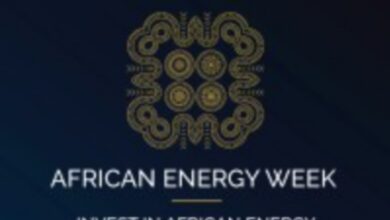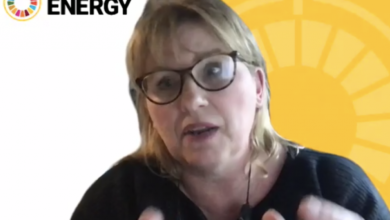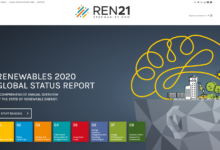
Earlier in the week, details emerged that President Muhammadu Buhari had withheld assent to the harmonised Petroleum Industry Governance Bill (PIGB).
Ita Enang, the presidential aide on National Assembly Matters, said on Wednesday that the decision was made for constitutional and legal reasons.
Mr Enang said the provision of the Bill permitted the Petroleum Regulatory Commission to retain as much as 10 per cent of the revenue generated unduly increases the funds accruing to the Commission to the detriment of the revenue available to the Federal, States and Local governments as well as the Federal Capital Territory.
Besides, he said the president felt that expanding the scope of Petroleum Equalisation Fund made some provisions of the draft law to be in divergence from his administration’s policy and indeed conflicted with provisions on the Fund.
The development comes against the backdrop of the huge expectations in the industry, following more than a decade of dilly-dallying over the passage of the bill.
The House of Representatives passed the bill in the first quarter of 2018, after the Senate had done same earlier in November 2017.
The PIGB is one of four parts of the proposed Petroleum Industry Bill (PIB),
first introduced in 2000, which seeks to update and replace the outdated provisions with a more comprehensive and current petroleum industry law that aligns with global standards.
But nearly two decades after, the bill again suffered another major setback with Mr Buhari’s withhold of assent.
Oil Lessons From Ghana?
However, in the years between 2000 and 2018 that Nigeria has failed to properly reform its oil sector, Ghana, a relatively newer producer of oil on the continent, has shown some level of seriousness with governance of its oil industry.
“We (Ghana) copied our sector laws from Nigeria and other countries but are wise to ‘paste special’ to avoid the mistakes,” said Daniel Domelevo, Ghana’s Auditor General in an address at the ongoing African Regional Extractive Industries Knowledge (REIK) Hub last Monday.
The programme, organised by the Natural Resource Governance Institute (NRGI) in collaboration with German International Development Cooperation (GIZ), offered mid to senior energy reporters, civil society and government officials continent-wide insights into the oil industry.
At the forum, holding in Accra, Ghana’s capital city, attendees continue to deliberate on the various challenges facing Africa’s acclaimed giant, with its numerous paradoxes.
Nicola Woodroffe, a senior legal analyst at NRGI, noted that Nigeria had licencing rounds where those awarded blocks had no capacity to develop them.
The country in NRGI’s Resource Governance Index for 2017 ranked 55 among 89 countries, with licencing and other key governance areas identified as poor.
Ghana, the index showed however, has really improved its licencing process with the publication of a register that covers timelines and processes, for transparency purposes. The nation, unsurprisingly, ranked 18 on the index.
In August 2016, more than a decade after Nigeria initiated the idea of an industry governance law, Ghana made what could be described as regional triumph with the passage of its Petroleum Industry Bill (PIB).
Tagged Petroleum Production and Exploration Bill, it aimed to strengthen and improve the legal environment governing the exploration and production of its resource.
According to Ghana’s energy minister, Kofi Buah, the law was meant to tighten the country’s 1984 law which regulated the sector. Ghanaian participants in Accra told PREMIUM TIMES the PIB is being considered for review, already.
The nation also made provision for a revenue management act which allocates oil revenues between the national oil company and other fund management accounts.
On Friday, a visit to its state-owned Tema Oil Refinery (TOR) at Tema showed the facility, which can refine 45,000 barrels per stream daily, functions––unlike Nigeria’s four refineries that have become moribund.
At the NRGI programme, facilitators noted that the nation has one of the most well-managed sovereign wealth fund accounts among oil producers, while the management of Nigeria’s equivalent of same account is riddled with controversies.
Oil and gas sector stakeholders believe however that these anomalies, and several others, are what the PIGB and other sister bills were designed to address.
PIGB In Perspective
The bill seeks to empower institutions and not individuals, remove bad governance which leads to inefficiency, ineffectiveness, rent-seeking tendencies, inequity, secrecy and corruption in the country’s petroleum industry.
The Bill proposes to reform the governing institutional framework of the Nigerian petroleum industry by setting up an independent regulatory agency, unbundling the NNPC into two limited liability companies and setting specific policy roles for the Minister of Petroleum Resources, amongst others.
The other parts of the draft law, which are still pending consideration by the National Assembly, include the Petroleum Industry Administration Bill (PIAB), Petroleum Industry Fiscal Bill (PIFB) and Petroleum Host and Impacted Communities Bill (PHICB).
The PIAB focuses on establishing a transparent and efficient management of exploration and production operations, while the PIFB deals with financiall terms, in terms of tax regimes and contractual terms to help realise full value in line with global standards.
The PHICB takes care of the rights and opportunities for local benefits, in terms of restitution for environmental and social costs of resource extraction activities.
In an interview with PREMIUM TIMES Sunday night, Musa Rasfanjani, a civil society campaigner, expressed disappointment in the nation’s lacklustre attitude to reforms in the industry.
“It’s a shame that Nigeria is not leading on good governance in the oil and gas sector after more than four decades of doing business, we don’t have an effective legislation and practice that would promote efficiency, transparency, reduce corruption and waste and promote business integrity,” he noted.
“PIGB is a good direction towards an improved petroleum sector in Nigeria but those who don’t believe in strengthening our system for better management of this important sector continue to undermine efforts towards transparent and accountable systems.”
Losses Occasioned By Poor Governance
Nigeria lost about N1.74 trillion to the absence of the Petroleum Industry Governance Bill (PIGB) in 2013, according to the Nigeria Extractive Industries Transparency Initiative (NEITI).
The transparency watchdog, in a report in January, also said the sector lost over $10.4 billion and N378.7 billion through under-remittances, inefficiencies, and theft due to absence of a clear governance framework for the oil and gas industry.
Africa’s largest economy depends on oil revenue to fund its revenue and fix other concerns around governance and development. The nation slipped into recession in 2016 following a slump in oil prices. In the second quarter of 2017, it recovered from the recession after oil prices appreciated in the international oil market and has since been on a steady growth.
The nation’s Gross Domestic Product, GDP, however nosedived to 1.50 per cent in the second quarter of 2018 after an appreciable increase in the first quarter of same year.
Analysts are worried the signs may be ominous as the nation prepares for another round of elections and its attendant politicking in the coming months.
In June, reports said Nigeria overtook India as the nation with the highest number of extremely poor people. The report, published by Brookings Institution, said the number of Nigerians in extreme poverty increases by six people every minute.
With a population of over 200 million, pundits often wonder why the nation’s huge resources have failed to translate to prosperity for the people. With tens of thousands of dollars made from oil since it began commercial production in 1956, Nigeria’s underdeveloped status is often attributed to corruption and opacity, especially in the management of its oil sector.
Stakeholders say the PIGB would conveniently address this and other issues if passed, but there are concerns around the president’s refusal to assent to the bill and its return to the Senate.
Already, there are fears that the bill may become another casualty in the executive-legislature face-off that the nation has witnessed in recent time.
Since his inauguration as Senate President in 2015, Bukola Saraki and Mr Buhari have disagreed over several issues, with the nation’s governance suffering.
Last week, the senate president declared his interest in the nation’s presidential seat, on the platform of the opposition People’s Democratic Party. The move came amid controversies on the funding of next year election, weeks after Mr Saraki defected from the ruling All Progressives Congress, which is poised to field incumbent Mr Buhari as its candidate once again at the polls in 2019.
“We call on both the executive and legislature to ensure that they do not allow politics, personality egos and party affiliations to supersede the national interest and potential benefits due to Nigeria and her people from the passage of this all important legislation,” said the Civil Society Legislative Advocacy Centre (CISLAC), in a reaction to the development last week.
“We remind the two arms of government that national interest and pride are at stake, as much as their integrity, considering that they have made repeated promises to the citizens that this law will be passed during their tenure in office to break a 12-year old jinx. The passage of the PIGB and indeed all other components of the PIB should not become another campaign promise unfulfilled.”
By Oladeinde Olawoyin,premiumtimesng.com







